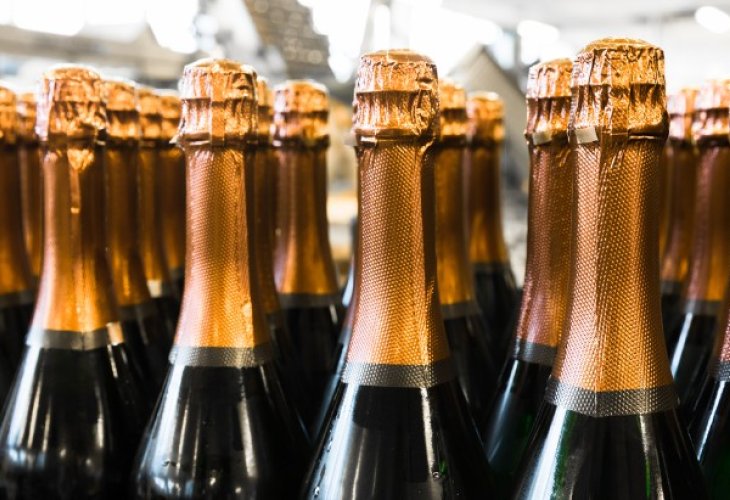Jewish Law
Is Pasteurized Wine Considered Boiled? Halachic Insights on Yayin Mevushal
From Talmudic times to modern wineries, discover how halacha defines “boiled wine” and why pasteurized wines remain permitted even if touched by a non-Jew

The Talmud tells the story of the great Amora Shmuel, who once sat with a gentile named Ablet, one of the greatest astrologers of his time. Ablet was careful not to touch Jewish wine, knowing that doing so would make it prohibited. Shmuel explained to him that even if he had touched it, it would not matter — because the wine had already been boiled.
Shmuel explained that once wine is cooked, it is no longer subject to the prohibition of Yayin Nesech (wine that may have been offered to idolatry). From that time until today, Jews have continued drinking boiled wine (Yayin Mevushal), even though it may have been touched by a non-Jew — because the Sages ruled that boiled wine is not considered fit for idolatrous libations, and therefore remains permitted.
In modern times — with the advent of pasteurization, confusion has arisen: Is pasteurized wine truly considered “boiled”? Is it permitted if touched by a gentile — or, sadly, even by a Jew who publicly desecrates Shabbat?
Let’s bring clarity to this halachic discussion.
Why Non-Jewish Wine Was Forbidden
The Sages enacted two separate decrees forbidding wine handled or produced by non-Jews, even if not used for idol worship (Avodah Zarah):
Social separation: To prevent overly close relationships that could lead to intermarriage — if Jews and gentiles shared wine together, friendships and marriages might develop.
Idolatry concern: Out of fear that a gentile might secretly dedicate the wine to idolatrous worship.
While there is debate among halachic authorities whether these two concerns are separate or interdependent, the practical outcome is clear that boiled wine is permitted, as no one would offer it as a libation on an altar.
Thus, the Shulchan Aruch rules that wine touched by a non-Jew is permitted if it has been boiled. In fact, one may even drink from the same cup a gentile drank from, since Yayin Mevushal cannot be offered for idolatry.
When Is Wine Considered “Boiled”?
The Shulchan Aruch defines: “Wine is called boiled once it has boiled on the fire.”
This means that any wine that reaches the point of visible bubbling or boiling is considered Yayin Mevushal and therefore permitted even if touched by a gentile.
By this definition, modern pasteurized wine, which is heated to around 70°C (158°F) during the industrial process, would seem to qualify.
How Pasteurization Works
In modern wineries, the grapes are crushed and sent through heated stainless-steel pipes that bring the liquid up to pasteurization temperature. The wine is then fermented, filtered, and aged — in oak barrels or stainless-steel tanks, depending on the type of wine — before bottling.
Being that the wine reaches boiling temperature, it would appear to be “cooked.”
The Halachic Complication
A concern was already mentioned by the Geonim and hinted at in the Jerusalem Talmud: Wine is only considered boiled if it has evaporated slightly — that is, if its volume has visibly decreased due to steam loss during boiling.
In modern pasteurization, the process occurs in a closed system, meaning that the vapor does not escape — it either condenses back into the wine or remains trapped within the system. If no volume is actually lost, some authorities argue the wine has not technically boiled.
As a result, certain contemporary halachic authorities do not recognize pasteurized wine as fully “boiled.”
Rabbi Ovadia Yosef’s Ruling
The late Rabbi Ovadia Yosef — known as Avir HaPoskim (“the master of decisors”), demonstrated from numerous sources that it is sufficient for the wine to be capable of evaporation, even if, in practice, the vapor does not escape because of the sealed machinery.
Being that the wine reaches a temperature that would normally cause evaporation, it halachically qualifies as boiled, even without actual loss of volume.
Furthermore, halacha views condensed vapor as “mere moisture”, not as part of the original wine — so even if the vapor condenses and returns, it does not negate the status of Yayin Mevushal.
The Stringent Practice of Badatz Beit Yosef
Under the supervision of Rabbi Moshe Yosef, the Badatz Beit Yosef kashrut organization takes extra precautions:
Their wineries use a system that releases all steam externally, ensuring that the wine indeed loses measurable volume.
The wine is heated to at least 80°C (176°F) — above the standard pasteurization level, to guarantee definite boiling.
This process ensures that all Beit Yosef-certified wines are unquestionably Yayin Mevushal according to even the strictest halachic opinions.
Does the Taste Need to Change?
Some halachic authorities maintain that wine must change taste or aroma through heating to be considered boiled. Rabbi Ovadia Yosef, however, disagreed, proving that boiling alone is sufficient, even if the wine’s taste, color, and aroma remain unchanged.
(Interestingly, some wine experts do claim that pasteurization alters the flavor for the worse — which is why in France and the U.S., pasteurization is generally forbidden in winemaking.)
A Problematic Practice in Some Wineries
Rabbi Moshe Yosef has raised another concern: In many wineries, the crushed grapes are heated slightly before fermentation to deepen the wine’s color. Some kashrut agencies mistakenly consider this pre-fermentation heating as pasteurization, even though:
The liquid may not reach halachic boiling temperature (yad soledet bo, over 40°C / 104°F).
And at that point, it’s not yet wine, only grape must (unfermented juice).
Therefore, this heating cannot qualify as “boiling” for halachic purposes, and such wine should not be considered Mevushal.

